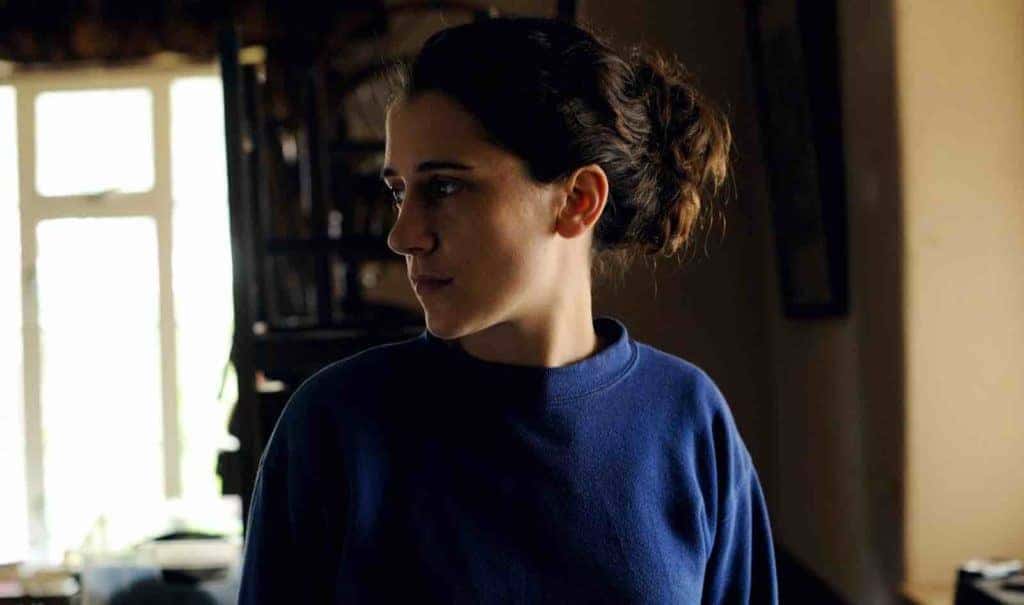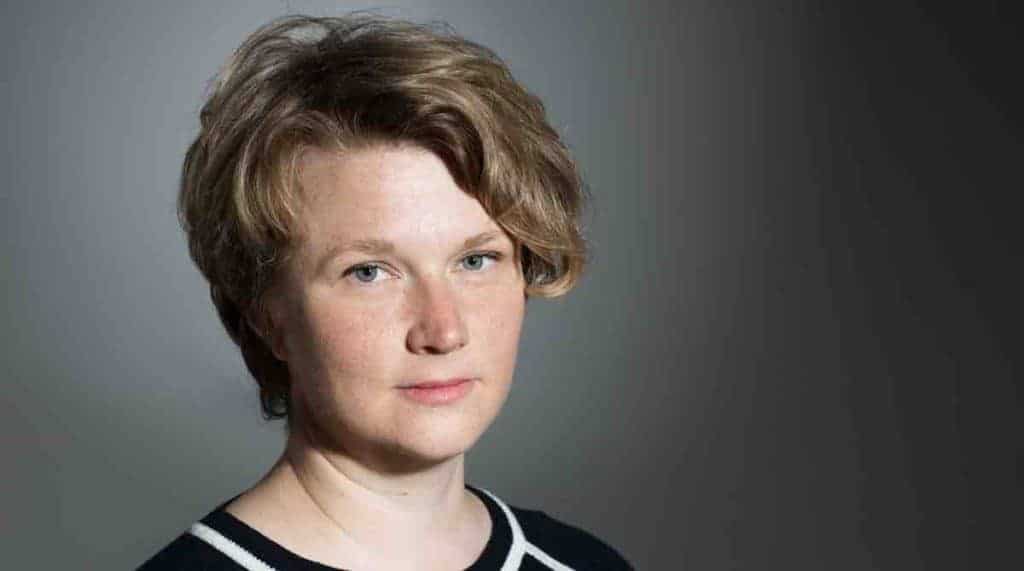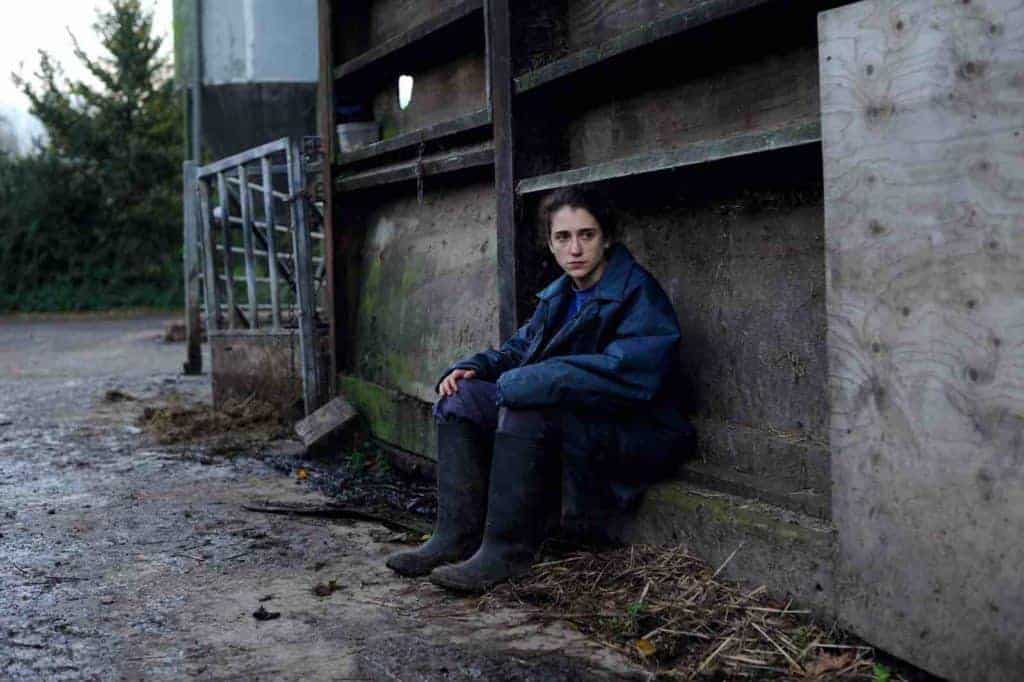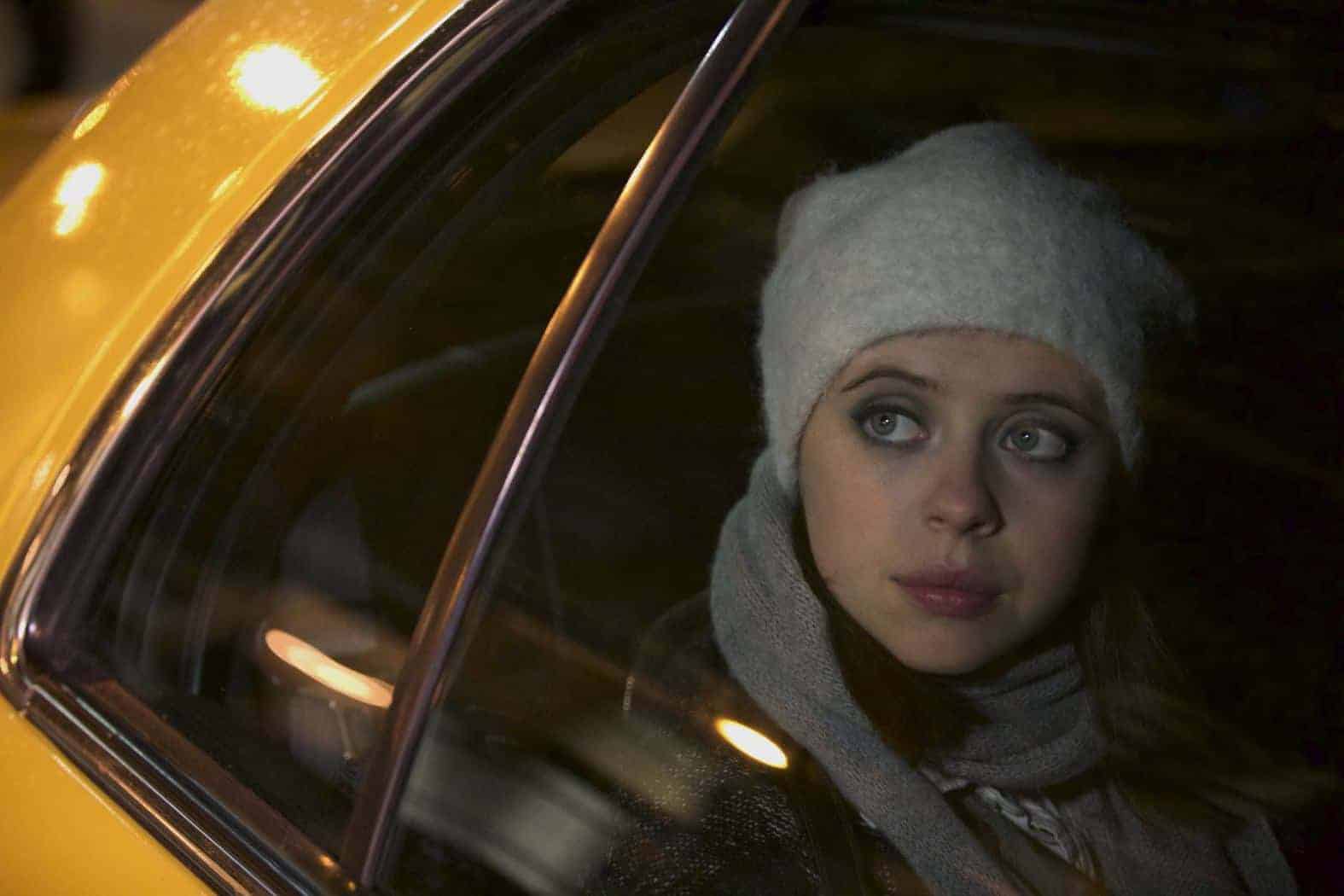One of the highlights of last year’s TIFF, The Levelling announces a new talent on the film scene in writer-director Hope Dickson Leach. She talks to Elena Lazic about developing and designing the film, which opens in North America on March 24.
This interview with Hope Dickson Leach was originally published on September 9, 2016, as part of our 2016 Toronto International Film Festival Coverage.
Hope Dickson Leach’s astonishing debut feature The Levelling has a vivid sense of place, evoking as it does all the mud, toil and sense of tradition which define its rural Somerset setting. However, Leach grew up in Hong Kong and was not particularly familiar with that part of England before making The Levelling.
[clickToTweet tweet=”‘This absence of the communication essential for survival echoed the situation in this drama.’ -Leach” quote=”It struck me that this absence of the communication essential for survival echoed really well the situation in this drama I had written.”]
She told me that the idea for the drama in the film came long before the location. It was when she learned of the floods that hit the region in recent years that she took interest in Somerset. “I started talking with local farmers who told me it was a lack of communication between the farmers and the environmental agencies that had led to this disaster. It struck me that this absence of the communication essential for survival echoed really well the situation in this drama I had written.”
The Levelling tackles what may be the most complex kind of grief: that felt for a loved one who took their own life. We follow young vet student Clover (Ellie Kendrick, a striking presence) as she returns to her family home in rural England after the sudden and unexpected death of her brother Harry. Helping her father Aubrey (David Troughton) take care of the family farm, she soons entertains suspicions about the circumstances surrounding what Aubrey describes as an accident.
[clickToTweet tweet=”I thought it would be important to challenge the idea of grief as something purely negative.” quote=”Grief is a very static and disabling thing…I thought it would be important…to challenge the idea of it as something that is purely negative.”]
Hope Dickson Leach explained that she finds herself drawn to films about grief, and she has already explored the subject in short films. “I think grief is a very static and disabling thing,” she told me, “so when I decided to extend the idea to feature length, I thought it would be important to explore different aspects of grief, and to challenge the idea of it as something that is purely negative.” She wanted to explore further what she tentatively describes as a “magical period” after something terrible has happened where there is an opportunity for people to really question the way they function, especially within their relationships.
Read more: Director Francis Lee and his stars discuss his rural romance God’s Own Country >>
The film gracefully allows space for both Clover’s mourning and her inevitable questioning about what might have driven her brother to suicide. Although both aspects are motivated by grief, it is Clover’s search for answers that forces her out of her mournful immobility. This drives both herself and the film forward — out of the past and into the future.
As Leach explained, the levelling of the title refers as much that of the land by flooding as that of people by a traumatic event. Levelled by their shared pain, they find the reason and will to dredge up old grievances and disputes. Confronting her father and Harry’s best friend James (Jack Holden), Clover uncovers past resentments that all played some significant part in what happened on the night of her brother’s death. She, in turn, makes a point of setting the record straight with her resentful father about why exactly she left the household some years before.
[clickToTweet tweet=”The titular levelling occurs both to the land by flooding and to the people by a traumatic event.” quote=”The titular levelling occurs both to the land by flooding and to the people by a traumatic event.”]
Read more: Interview: Documentarians Neasa Nï Chianáian and David Rane on In Loco Parentis and school as utopia >>
Leach worked with her cinematographer Nanu Segal to create a visual style that would combine the intimate social realist camerawork of the Dardenne brothers and the objectifying aesthetic of Bruno Dumont. Static long shots showing a figure alone in a space are seamlessly integrated into the general aesthetic, where the camera closely follows Clover and offers her subjective perspective and experience.
“I always thought of this as my European film,” Leach told me. “Although there was this underlying sense of a thriller, I didn’t want to force too much kinetic movement on the story because that wouldn’t have reflected Clover’s experience. I wanted to remain close to her. My film is not ultimately a mystery thriller.”
[clickToTweet tweet=”‘We never really know what’s happening in someone’s head.’ – Hope Dickson Leach” quote=”We never really know what’s happening in someone’s head, and if you get stuck in that place, madness lies ahead.”]
Although the question of Harry’s death pushes the story forward, The Levelling never falls into the trap of giving a straightforward explanation for his suicide. When Clover ultimately finds herself in the same gruesome situation that pushed her brother to take his own life, she does not choose to do the same; as such, the film does not purport to explain why Harry did it. “We never really know what’s happening in someone’s head, and if you get stuck in that place, madness lies ahead,” explained Leach.
In an intense and emotional final sequence, Clover finds the best answer she could hope for, but is no less confused by her brother’s act. And yet, in a matter of seconds, the young woman seems to finally let go of what she has lost and to dramatically realise what she still has. As Leach put it, “at some point you have to tell yourself ‘OK, well I’m here, now what?’”
Read more about British Cinema: Writer-director-star Alice Lowe talks Prevenge >>




